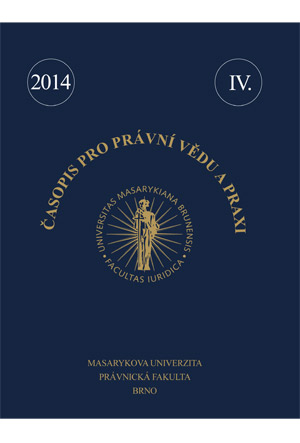O zablokování soudu námitkami podjatosti a o tom, jakým způsobem (ne)řešit tuto situaci
When Motions for Recusal Paralyze a Court: Possible Solutions to the Problem
Author(s): Alžbeta RosinováSubject(s): Constitutional Law
Published by: Masarykova univerzita nakladatelství
Keywords: recusals; courts;obstruction of justice;solutions;
Summary/Abstract: The article addresses a complicated question – how to solve a situation when too many motions for recusal are filed by parties to a dispute, which in effect impedes the ability of the court to perform its function? First, I describe two landmark cases of the Constitutional Court of Slovakia – the case of Štefan Harabin, and the case of Jozef Čentéš – which were both controversial and of highly political nature. Then I proceed to the analysis of the application of Article 6 (right to a fair trial) of the European Convention on Human Rights. I argue that Article 6 is applicable to proceedings on the merits, but does not apply to recusal process. This leads me to the conclusion that the relevant provisions of Work Schedule of the Constitutional Court of Slovakia are in compliance with the Article 6, unlike the disputed amendment of the Constitutional Court Act. Next, I shift my attention to the doctrine of necessity, i.e. the principle that a judge who would be otherwise disqualified is allowed to hear and decide the case when failure to do so may result in injustice. I contend that the doctrine of necessity cannot justify the controversial amendment of the Constitutional Court Act; the main reason is that this doctrine may be applied only after the decision on motion for recusal has been issued. In the end I draw on the experience of Slovakia and suggest possible changes to the Czech legislation regarding exclusion of the judges of the Constitutional Court of the Czech Republic. I propose an introduction of alternative decision-makers (replacements) for the situations when
Journal: Časopis pro právní vědu a praxi
- Issue Year: 22/2014
- Issue No: 4
- Page Range: 344-351
- Page Count: 8
- Language: Czech

